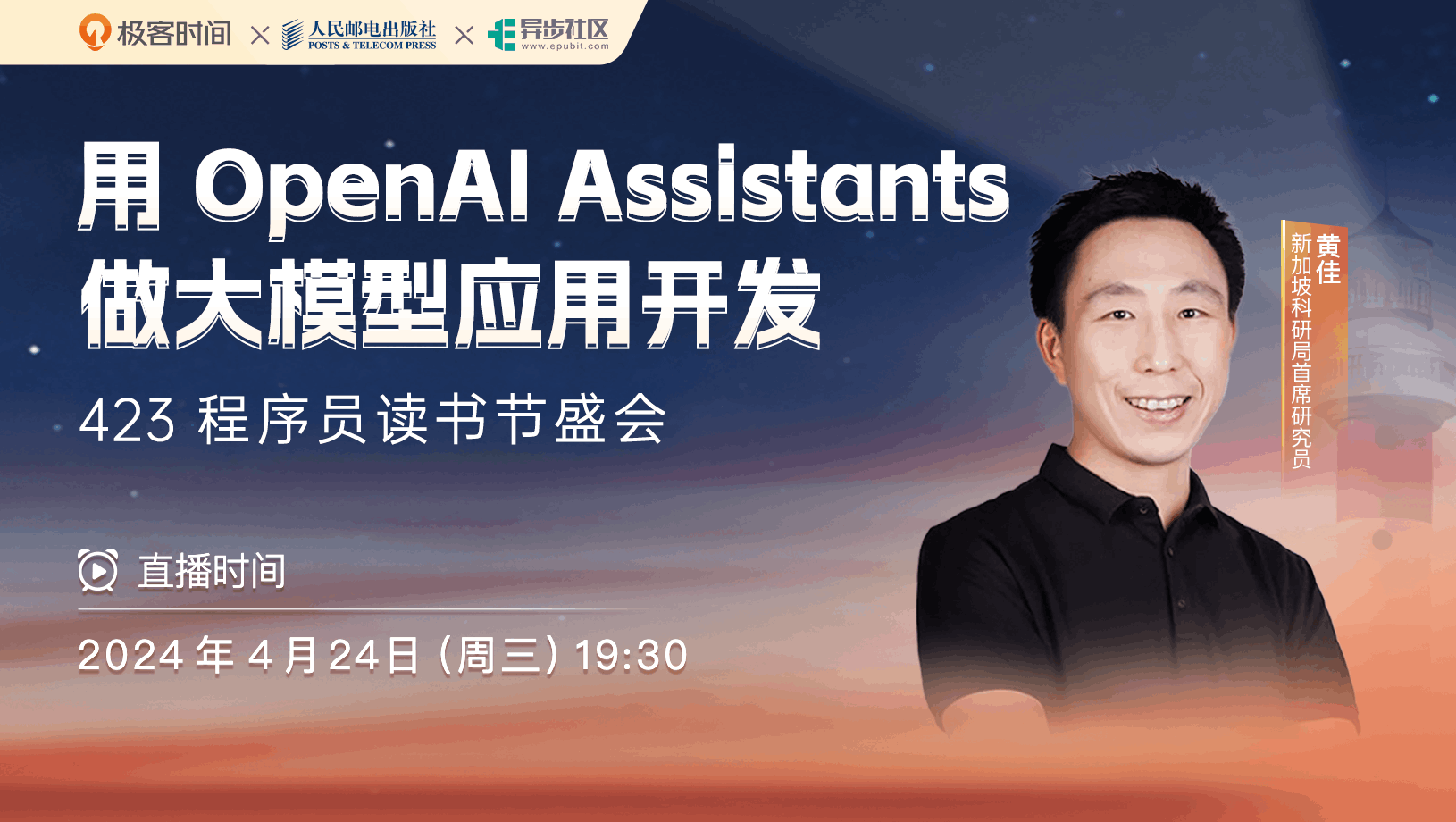Android SDK之ASR源码及流程分析
ASR全称是Automatic Speech Recognition,是自动语音识别,将人说出来的化自动识别成文本。本文将从ASR的简单demo使用,对Android SDK里涉及的语音识别进行源码分析涉及的Android SDK 核心源码路径如下:android.speech.SpeechRecognizerandroid.speech.RecognitionListeneran...
ASR全称是Automatic Speech Recognition,是自动语音识别,将人说出来的化自动识别成文本。本文将从ASR的简单demo使用,对Android SDK里涉及的语音识别进行源码分析
涉及的Android SDK 核心源码路径如下:
android.speech.SpeechRecognizer
android.speech.RecognitionListener
android.speech.RecognitionService
Demo如下
前置条件:允许录制语音权限
private void testRecognition() {
boolean recognitionAvailable = SpeechRecognizer.isRecognitionAvailable(this);
Log.e(TAG, "recognition==" + recognitionAvailable);
if (!recognitionAvailable) {
return;
}
List<ResolveInfo> list = getPackageManager().queryIntentServices(new Intent(
RecognitionService.SERVICE_INTERFACE), getPackageManager().MATCH_ALL);
Log.e(TAG,"RecognitionService size="+list.size());
ResolveInfo info = list.get(0);
Log.e(TAG, "packageName=" + info.serviceInfo.packageName + " /name=" + info.serviceInfo.name + "//info=" + info.toString());
ComponentName currentRecognitionCmp = new ComponentName(info.serviceInfo.packageName, info.serviceInfo.name);
speechRecognizer = SpeechRecognizer.createSpeechRecognizer(this, currentRecognitionCmp);
speechRecognizer.setRecognitionListener(new SampleRecognitionListener());
Intent mRecognitionIntent = null;
if (mRecognitionIntent == null) {
mRecognitionIntent = new Intent(RecognizerIntent.ACTION_RECOGNIZE_SPEECH);
mRecognitionIntent.putExtra(RecognizerIntent.EXTRA_LANGUAGE_MODEL, RecognizerIntent.LANGUAGE_MODEL_FREE_FORM);
}
speechRecognizer.startListening(mRecognitionIntent);
}
class SampleRecognitionListener implements RecognitionListener {
@Override
public void onReadyForSpeech(Bundle bundle) {
Log.d(TAG, "onReadyForSpeech Start");
}
@Override
public void onBeginningOfSpeech() {
Log.d(TAG, "onBeginningOfSpeech Start");
}
@Override
public void onRmsChanged(float v) {
Log.d(TAG, "onRmsChanged Start");
}
@Override
public void onBufferReceived(byte[] bytes) {
Log.d(TAG, "onBufferReceived Start");
}
@Override
public void onEndOfSpeech() {
Log.d(TAG, "onEndOfSpeech Start");
}
@Override
public void onError(int error) {
Log.d(TAG, "onError Start");
switch (error) {
case SpeechRecognizer.ERROR_NETWORK_TIMEOUT:
resetText("网络链接超时");
break;
case SpeechRecognizer.ERROR_NETWORK:
resetText("网络错误或者没有权限");
break;
case SpeechRecognizer.ERROR_AUDIO:
resetText("音频发生错误");
break;
case SpeechRecognizer.ERROR_CLIENT:
resetText("连接出错");
break;
case SpeechRecognizer.ERROR_SERVER:
resetText("服务器出错");
break;
case SpeechRecognizer.ERROR_SPEECH_TIMEOUT:
resetText("什么也没有听到");
break;
case SpeechRecognizer.ERROR_NO_MATCH:
resetText("没有匹配到合适的结果");
break;
case SpeechRecognizer.ERROR_RECOGNIZER_BUSY:
resetText("RecognitionService已经启动,请稍后");
break;
case SpeechRecognizer.ERROR_INSUFFICIENT_PERMISSIONS:
resetText("请赋予APP权限,另请(Android6.0以上)确认动态申请权限");
break;
default:
break;
}
Log.d(TAG, "onError End");
}
@Override
public void onResults(Bundle results) {
Log.d(TAG, "onResults Start");
String key = SpeechRecognizer.RESULTS_RECOGNITION;
ArrayList mResult = results.getStringArrayList(key);
String[] result = new String[0];
if (mResult != null) {
result = new String[mResult.size()];
}
if (mResult != null) {
mResult.toArray(result);
}
Log.d(TAG, "Recognize size="+result.length);
Log.e(TAG, result[0]);
Log.d(TAG, "onResults End");
}
@Override
public void onPartialResults(Bundle bundle) {
Log.d(TAG, "onPartialResults Start");
}
@Override
public void onEvent(int i, Bundle bundle) {
Log.d(TAG, "onEvent Start");
}
}
运行结果如下:
2020-04-09 14:13:30.716 4638-4638/com.example.test E/speech: recognition==true
2020-04-09 14:13:30.717 4638-4638/com.example.test E/speech: RecognitionService size=1
2020-04-09 14:13:30.717 4638-4638/com.example.test E/speech: packageName=com.iflytek.speechsuite /name=com.iflytek.iatservice.SpeechService//info=ResolveInfo{aa56b7c com.iflytek.speechsuite/com.iflytek.iatservice.SpeechService m=0x108000}
2020-04-09 14:13:30.784 4638-4638/com.example.test D/speech: onReadyForSpeech Start
2020-04-09 14:13:30.784 4638-4638/com.example.test D/speech: onBeginningOfSpeech Start
2020-04-09 14:13:30.979 4638-4638/com.example.test D/speech: onRmsChanged Start
2020-04-09 14:13:31.015 4638-4638/com.example.test D/speech: onRmsChanged Start
.....
2020-04-09 14:13:33.898 4638-4638/com.example.test D/speech: onRmsChanged Start
2020-04-09 14:13:33.935 4638-4638/com.example.test D/speech: onRmsChanged Start
2020-04-09 14:13:33.941 4638-4638/com.example.test D/speech: onEndOfSpeech Start
2020-04-09 14:13:34.063 4638-4638/com.example.test D/speech: onResults Start
2020-04-09 14:13:34.064 4638-4638/com.example.test D/speech: Recognize size=1
2020-04-09 14:13:34.064 4638-4638/com.example.test E/speech: 哈喽你好。
2020-04-09 14:13:34.064 4638-4638/com.example.test D/speech: onResults End
总结:只有一个引擎,测试机子是荣耀,对应的服务是com.iflytek.iatservice.SpeechService;如果对应的是其它手机,那么引擎的服务可能会有不同
举例如下:
三星 无
荣耀 com.iflytek.iatservice.SpeechService
红米 com.xiaomi.mibrain.speech.asr.AsrService
原生板子 com.google.android.vociesearch.serviceapi.googleRecognitionService
总结:
Android SDK 关于ASR的代码只是定义了语音识别的接口,具体的引擎需要各个厂商单独定义
核心流程就是SpeechRecognizer创建语音识别,开启继承RecognitionService的服务引擎,具体的语音识别过程回调返回给SpeechRecognizer
语音识别的服务继承自RecognitionService,且action="android.speech.RecognitionService"引擎识别从实现服务类的onStartListening方法开始
源码分析
首先判断是否有语音识别服务,查询所有的引擎服务,至少有一个时就可以使用,否则无法使用。如果是三星(Galaxy Tab S5e),没有引擎服务(或者没有适配Android SDK )
/**
* Checks whether a speech recognition service is available on the system. If this method
* returns {@code false}, {@link SpeechRecognizer#createSpeechRecognizer(Context)} will
* fail.
*
* @param context with which {@code SpeechRecognizer} will be created
* @return {@code true} if recognition is available, {@code false} otherwise
*/
public static boolean isRecognitionAvailable(final Context context) {
final List<ResolveInfo> list = context.getPackageManager().queryIntentServices(
new Intent(RecognitionService.SERVICE_INTERFACE), 0);
return list != null && list.size() != 0;
}
然后创建SpeechRecognizer实例,只能通过下面的两种方式创建,构造函数是私有的。因为我们是调用其它的服务,所以需要使用ComponentName调用对应的服务,否则 bind to recognition service failed;
/**
* Factory method to create a new {@code SpeechRecognizer}. Please note that
* {@link #setRecognitionListener(RecognitionListener)} should be called before dispatching any
* command to the created {@code SpeechRecognizer}, otherwise no notifications will be
* received.
*
* @param context in which to create {@code SpeechRecognizer}
* @return a new {@code SpeechRecognizer}
*/
public static SpeechRecognizer createSpeechRecognizer(final Context context) {
return createSpeechRecognizer(context, null);
}
/**
* Factory method to create a new {@code SpeechRecognizer}. Please note that
* {@link #setRecognitionListener(RecognitionListener)} should be called before dispatching any
* command to the created {@code SpeechRecognizer}, otherwise no notifications will be
* received.
*
* Use this version of the method to specify a specific service to direct this
* {@link SpeechRecognizer} to. Normally you would not use this; use
* {@link #createSpeechRecognizer(Context)} instead to use the system default recognition
* service.
*
* @param context in which to create {@code SpeechRecognizer}
* @param serviceComponent the {@link ComponentName} of a specific service to direct this
* {@code SpeechRecognizer} to
* @return a new {@code SpeechRecognizer}
*/
public static SpeechRecognizer createSpeechRecognizer(final Context context,
final ComponentName serviceComponent) {
if (context == null) {
throw new IllegalArgumentException("Context cannot be null)");
}
checkIsCalledFromMainThread();
return new SpeechRecognizer(context, serviceComponent);
}
SpeechRecognizer构造函数什么也没有,只是赋值
/**
* The right way to create a {@code SpeechRecognizer} is by using
* {@link #createSpeechRecognizer} static factory method
*/
private SpeechRecognizer(final Context context, final ComponentName serviceComponent) {
mContext = context;
mServiceComponent = serviceComponent;
}
在调用语音识别服务前,需要提前设置识别监听器setRecognitionListener;mService目前还没有实例,对应的RecognitionService实现类,先放到mPendingTasks链式队列里。
/**
* Sets the listener that will receive all the callbacks. The previous unfinished commands will
* be executed with the old listener, while any following command will be executed with the new
* listener.
*
* @param listener listener that will receive all the callbacks from the created
* {@link SpeechRecognizer}, this must not be null.
*/
public void setRecognitionListener(RecognitionListener listener) {
checkIsCalledFromMainThread();
putMessage(Message.obtain(mHandler, MSG_CHANGE_LISTENER, listener));
}
/** The actual RecognitionService endpoint */
private IRecognitionService mService;
/**
* Temporary queue, saving the messages until the connection will be established, afterwards,
* only mHandler will receive the messages
*/
private final Queue<Message> mPendingTasks = new LinkedList<Message>();
private void putMessage(Message msg) {
if (mService == null) {
mPendingTasks.offer(msg);
} else {
mHandler.sendMessage(msg);
}
}
假如服务已经启动,查看mHandler处理,就是赋值操作
/** Handler that will execute the main tasks */
private Handler mHandler = new Handler() {
@Override
public void handleMessage(Message msg) {
switch (msg.what) {
case MSG_START:
handleStartListening((Intent) msg.obj);
break;
case MSG_STOP:
handleStopMessage();
break;
case MSG_CANCEL:
handleCancelMessage();
break;
case MSG_CHANGE_LISTENER:
handleChangeListener((RecognitionListener) msg.obj);
break;
}
}
};
/** changes the listener */
private void handleChangeListener(RecognitionListener listener) {
if (DBG) Log.d(TAG, "handleChangeListener, listener=" + listener);
mListener.mInternalListener = listener;
}
这里需要重点关注下接口,它就是识别过程的回到,从识别开始到识别结束,有默认识别时间
package android.speech;
/**
* Used for receiving notifications from the SpeechRecognizer when the
* recognition related events occur. All the callbacks are executed on the
* Application main thread.
*/
public interface RecognitionListener {
/**
* Called when the endpointer is ready for the user to start speaking.
*
* @param params parameters set by the recognition service. Reserved for future use.
*/
void onReadyForSpeech(Bundle params);
/**
* The user has started to speak.
*/
void onBeginningOfSpeech();
/**
* The sound level in the audio stream has changed. There is no guarantee that this method will
* be called.
*
* @param rmsdB the new RMS dB value
*/
void onRmsChanged(float rmsdB);
/**
* More sound has been received. The purpose of this function is to allow giving feedback to the
* user regarding the captured audio. There is no guarantee that this method will be called.
*
* @param buffer a buffer containing a sequence of big-endian 16-bit integers representing a
* single channel audio stream. The sample rate is implementation dependent.
*/
void onBufferReceived(byte[] buffer);
/**
* Called after the user stops speaking.
*/
void onEndOfSpeech();
/**
* A network or recognition error occurred.
*
* @param error code is defined in {@link SpeechRecognizer}
*/
void onError(int error);
/**
* Called when recognition results are ready.
*
* @param results the recognition results. To retrieve the results in {@code
* ArrayList<String>} format use {@link Bundle#getStringArrayList(String)} with
* {@link SpeechRecognizer#RESULTS_RECOGNITION} as a parameter. A float array of
* confidence values might also be given in {@link SpeechRecognizer#CONFIDENCE_SCORES}.
*/
void onResults(Bundle results);
/**
* Called when partial recognition results are available. The callback might be called at any
* time between {@link #onBeginningOfSpeech()} and {@link #onResults(Bundle)} when partial
* results are ready. This method may be called zero, one or multiple times for each call to
* {@link SpeechRecognizer#startListening(Intent)}, depending on the speech recognition
* service implementation. To request partial results, use
* {@link RecognizerIntent#EXTRA_PARTIAL_RESULTS}
*
* @param partialResults the returned results. To retrieve the results in
* ArrayList<String> format use {@link Bundle#getStringArrayList(String)} with
* {@link SpeechRecognizer#RESULTS_RECOGNITION} as a parameter
*/
void onPartialResults(Bundle partialResults);
/**
* Reserved for adding future events.
*
* @param eventType the type of the occurred event
* @param params a Bundle containing the passed parameters
*/
void onEvent(int eventType, Bundle params);
}
然后设置对应的服务action,语音识别开启监听;首先开始绑定服务,然后发送MSG_START
/**
* Starts listening for speech. Please note that
* {@link #setRecognitionListener(RecognitionListener)} should be called beforehand, otherwise
* no notifications will be received.
*
* @param recognizerIntent contains parameters for the recognition to be performed. The intent
* may also contain optional extras, see {@link RecognizerIntent}. If these values are
* not set explicitly, default values will be used by the recognizer.
*/
public void startListening(final Intent recognizerIntent) {
if (recognizerIntent == null) {
throw new IllegalArgumentException("intent must not be null");
}
checkIsCalledFromMainThread();
if (mConnection == null) { // first time connection
mConnection = new Connection();
Intent serviceIntent = new Intent(RecognitionService.SERVICE_INTERFACE);
if (mServiceComponent == null) {
String serviceComponent = Settings.Secure.getString(mContext.getContentResolver(),
Settings.Secure.VOICE_RECOGNITION_SERVICE);
if (TextUtils.isEmpty(serviceComponent)) {
Log.e(TAG, "no selected voice recognition service");
mListener.onError(ERROR_CLIENT);
return;
}
serviceIntent.setComponent(ComponentName.unflattenFromString(serviceComponent));
} else {
serviceIntent.setComponent(mServiceComponent);
}
if (!mContext.bindService(serviceIntent, mConnection, Context.BIND_AUTO_CREATE)) {
Log.e(TAG, "bind to recognition service failed");
mConnection = null;
mService = null;
mListener.onError(ERROR_CLIENT);
return;
}
}
putMessage(Message.obtain(mHandler, MSG_START, recognizerIntent));
}
这里首先跟着服务绑定成功后查看流程,首先确定这是个跨进程服务,然后判断前面加入的Message是否为null,如果不是空的,循环执行Message,包括前面设置的MSG_CHANGE_LISTENER,返回跨进程的mService
/**
* Basic ServiceConnection that records the mService variable. Additionally, on creation it
* invokes the {@link IRecognitionService#startListening(Intent, IRecognitionListener)}.
*/
private class Connection implements ServiceConnection {
public void onServiceConnected(final ComponentName name, final IBinder service) {
// always done on the application main thread, so no need to send message to mHandler
mService = IRecognitionService.Stub.asInterface(service);
if (DBG) Log.d(TAG, "onServiceConnected - Success");
while (!mPendingTasks.isEmpty()) {
mHandler.sendMessage(mPendingTasks.poll());
}
}
public void onServiceDisconnected(final ComponentName name) {
// always done on the application main thread, so no need to send message to mHandler
mService = null;
mConnection = null;
mPendingTasks.clear();
if (DBG) Log.d(TAG, "onServiceDisconnected - Success");
}
}
绑定服务成功后,我们查看MSG_START消息发送给mHandler后,最后调用了跨进程服务mService的startListening
/** Handler that will execute the main tasks */
private Handler mHandler = new Handler() {
@Override
public void handleMessage(Message msg) {
switch (msg.what) {
case MSG_START:
handleStartListening((Intent) msg.obj);
break;
case MSG_STOP:
handleStopMessage();
break;
case MSG_CANCEL:
handleCancelMessage();
break;
case MSG_CHANGE_LISTENER:
handleChangeListener((RecognitionListener) msg.obj);
break;
}
}
};
/** sends the actual message to the service */
private void handleStartListening(Intent recognizerIntent) {
if (!checkOpenConnection()) {
return;
}
try {
mService.startListening(recognizerIntent, mListener);
if (DBG) Log.d(TAG, "service start listening command succeded");
} catch (final RemoteException e) {
Log.e(TAG, "startListening() failed", e);
mListener.onError(ERROR_CLIENT);
}
}
绑定的服务返回的mBinder,对应的是RecognitionServiceBinder,最终会调用服务内的mHandler,发送MSG_START_LISTENING;其中listener就是设置的RecognitionListener
android.speech.RecognitionService
/** Binder of the recognition service */
private static final class RecognitionServiceBinder extends IRecognitionService.Stub {
private final WeakReference<RecognitionService> mServiceRef;
public RecognitionServiceBinder(RecognitionService service) {
mServiceRef = new WeakReference<RecognitionService>(service);
}
@Override
public void startListening(Intent recognizerIntent, IRecognitionListener listener) {
if (DBG) Log.d(TAG, "startListening called by:" + listener.asBinder());
final RecognitionService service = mServiceRef.get();
if (service != null && service.checkPermissions(listener)) {
service.mHandler.sendMessage(Message.obtain(service.mHandler,
MSG_START_LISTENING, service.new StartListeningArgs(
recognizerIntent, listener, Binder.getCallingUid())));
}
}
}
跟踪最后调用dispatchStartListening(),,里面涉及的如果服务挂掉了,则发送取消相关操作,然后调用RecognitionService.this.onStartListening(intent, mCurrentCallback),其中mCurrentCallback含有前面设置的回调内容,而方法是服务的抽象方法,需要实现;涉及的抽象方法有onStartListening,onCancel,onStopListening.这个就是开启引擎的地方
private void dispatchStartListening(Intent intent, final IRecognitionListener listener,
int callingUid) {
if (mCurrentCallback == null) {
if (DBG) Log.d(TAG, "created new mCurrentCallback, listener = " + listener.asBinder());
try {
listener.asBinder().linkToDeath(new IBinder.DeathRecipient() {
@Override
public void binderDied() {
mHandler.sendMessage(mHandler.obtainMessage(MSG_CANCEL, listener));
}
}, 0);
} catch (RemoteException re) {
Log.e(TAG, "dead listener on startListening");
return;
}
mCurrentCallback = new Callback(listener, callingUid);
RecognitionService.this.onStartListening(intent, mCurrentCallback);
} else {
try {
listener.onError(SpeechRecognizer.ERROR_RECOGNIZER_BUSY);
} catch (RemoteException e) {
Log.d(TAG, "onError call from startListening failed");
}
Log.i(TAG, "concurrent startListening received - ignoring this call");
}
}
/**
* Notifies the service that it should start listening for speech.
*
* @param recognizerIntent contains parameters for the recognition to be performed. The intent
* may also contain optional extras, see {@link RecognizerIntent}. If these values are
* not set explicitly, default values should be used by the recognizer.
* @param listener that will receive the service's callbacks
*/
protected abstract void onStartListening(Intent recognizerIntent, Callback listener);
一个空引擎服务如下,其中onStartListening是语音识别服务的开始,然后引擎识别过程根据CallBack进行回调
public class RecService extends RecognitionService {
@Override
protected void onStartListening(Intent recognizerIntent, Callback listener) {
}
@Override
protected void onCancel(Callback listener) {
}
@Override
protected void onStopListening(Callback listener) {
}
}
更多推荐
 已为社区贡献2条内容
已为社区贡献2条内容








所有评论(0)